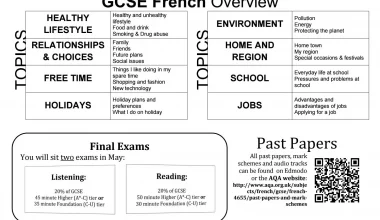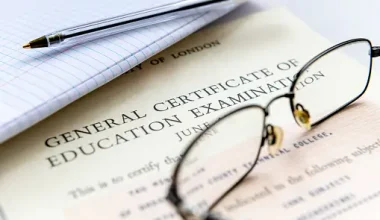Known for its hard curriculum and comprehensive study of past events, students begin to wonder if history A-level is a difficult subject as they begin their academic journey. Laying much emphasis on critical thinking, in-depth research, and varied understanding of historical events, it is therefore not surprising when students ask; is history A-level hard?
Interestingly, while most of the new students see and take up the A-level history as an enormous task, others find it easy to blend in with the fascinating subjects around history.
Therefore, this article will explore the various aspects of the history A-level course and explaining why students see it as a difficult subject rather than the interesting tag it should carry.
Table of contents
- Is A-Level History Difficult?
- How many marks for an A in history A level?
- How hard is it to get an A* in History?
- What Makes it Difficult?
- What percentage of people get an A in A-Level History?
- What topics are in A-level history?
- What are the entry requirements for A-Level History?
- The Challenges of A-Level History
- FAQs
- Conclusion
- References
- Recommendations
Is A-Level History Difficult?
Although history at the A-level is frequently considered difficult, it’s crucial not to let that deter you. The quantity of material and the required level of analysis are two factors in the reputation of A-level history.
In contrast to other disciplines where memorizing can get you by, history requires critical thinking and in-depth comprehension. This implies that reading, investigating, and interpreting historical sources will take much time and effort from pupils.
But difficulty need not be the same as impossibility. A-level history presents several challenges, but they may also be very rewarding. The course allows students to interact with fascinating historical figures and events, improving their comprehension of contemporary culture.
Additionally, by taking A-level history, students develop essential qualities, including research skills, critical thinking, essay writing abilities, and effective communication abilities, all of which are desirable for future academic endeavours or professional prospects.
Undoubtedly, students who want to thrive in A-level history must put in a lot of effort and attention, but to regard the subject as impossible to master would be oversimplifying.
Anyone can succeed in this subject with motivation and effective study techniques, such as segmenting huge concepts into digestible bits or making mind maps for visual comprehension.
Acquiring knowledge and using critical reasoning are challenging aspects of appropriately interpreting historical events. This is a challenge worth accepting rather than avoiding.
Read Also: How Do I Write an Evidence Cover Letter for Student Finance?
How many marks for an A in history A level?
Usually, to make an A in history A-level, you’ll need to make an 80 or above on every aspect of the exam, assessments and coursework included. However, it is important to confirm the exact pass grade for making an A in history A-level with your exam board.
You can visit your exam’s board website to confirm that.
How hard is it to get an A* in History?
Achieving an A in History requires more than just memorizing dates and events. It demands critical thinking, analysis, and the ability to construct a coherent argument.
History is not simply about regurgitating facts but rather about interpreting them within a larger context. This means understanding the significance of events, their causes and consequences, and how they have shaped our world today.
To excel in history, one must have strong research skills to find and evaluate credible sources that provide multiple perspectives on an issue.
Effective writing skills are also crucial for constructing well-structured essays and communicating ideas effectively. Historians must also be meticulous when citing sources accurately and adhering to specific citation styles.
Moreover, history often presents ambiguous situations where there may be no right or wrong answer but different interpretations based on evidence. Therefore, achieving an A in history requires analyzing information critically and making well-supported arguments that can stand up to scrutiny.
Read Also: 15 Best A-Level Subject Combinations: What A-Level Subjects Go Well Together?
What Makes it Difficult?
Although history at the A-level is frequently considered difficult, it’s crucial not to let that deter you. The quantity of material and the required level of analysis are two factors in the reputation of A-level history.
In contrast to other disciplines where memorizing can get you by, history requires critical thinking and in-depth comprehension.
This implies that reading, investigating, and interpreting historical sources will take much time and effort from pupils.
But difficulty need not be the same as impossibility. Although it presents several challenges, it is also very rewarding. The course allows students to interact with fascinating historical figures and events, improving their comprehension of contemporary culture.
Additionally, by making A-level history, students develop essential qualities, including research skills, critical thinking, essay writing abilities, and effective communication abilities—all desirable for future academic endeavours or professional prospects.
Undoubtedly, students who want to thrive in A-level history must put in a lot of effort and attention, but to regard the subject as impossible to master would be oversimplifying.
Anyone can succeed in this subject with motivation and effective study techniques, such as segmenting huge concepts into digestible bits or making mind maps for visual comprehension.
Acquiring knowledge and using critical reasoning are challenging aspects of appropriately interpreting historical events. This is a challenge worth accepting rather than avoiding.
Read also: How to Be Prepared for A-level Results Day in 2024
What percentage of people get an A in A-Level History?
Year after year, the percentage of students who get an A in A-level history fluctuates. This is due to a number of factors. They include: changes in curriculum, exam difficulty, and student batch.
Although the numbers surrounding consistency and exam fairness across boards can change, the percentage of people who make an A has revolved between 20 -30%. Bear in mind that making a A requires a high level of academic discipline, adequate exam preparation, and a deeper understanding of the subject.
What topics are in A-level history?
A-Level History covers various topics from different time periods and regions. What you study depends on your school and exam board. However, common topics include:
- Origin and effects of the World Wars I and II
- Cold War
- Changes in international relations since 1945
- Facts about nations like the Great Britain, France, Germany, Italy, Russia, and Eastern Europe
- Industrial revolution
- Tudor and Stuart eras
- Civil war and reconstruction
- The civil rights movement
- The British empire
- Nationalism, imperialism, colonialism, and decolonization.
What are the entry requirements for A-Level History?
To take history A-level, you need to have completed your GCSE with satisfactory grades in English and history. While other schools may require less of your GCSE subjects, other may require more.
It is necessary to make your findings before registering for A-level history as other special entry requirements vary from school to school.
The Challenges of A-Level History
Here are the challenges most students face with a-level
Understanding Historical Narrative Complexity
The history A-level curriculum delves deeply into historical narratives and encourages students to consider events from several angles.
Although first intimidating, this complexity cultivates the capacity to evaluate sources critically, identify biases, and build well-rounded arguments.
Extensive research and reading
The requirement for considerable reading and independent investigation is an essential component of History A-Level.
Success depends on interacting with primary and secondary sources, investigating scholarly literature, and making connections between historical eras. This procedure improves the skills of investigation and synthesis.
Expertise in writing essays
An essential talent for history A-Level is the ability to express ideas and arguments coherently. Students are frequently asked to create well-organized essays with a vital topic and supporting details from the past. This promotes analytical thinking while also enhancing writing ability.
The Process of Critical Analysis
An essential component of history at A-Level is the analysis of historical sources, records, and interpretations. Students gain the capacity to evaluate materials critically, separate fact from opinion, and approach historical narratives with discernment.
Skills in Time Management
Effective time management is necessary to balance the requirements of History A-Level with those of other subjects. Discipline and organization are required because reading, researching, and writing essays take time.
Related article: What Happens If You Do Worse in a GCSE Resit?
FAQs
No, the history A-Level requires more than memory. While familiarity with historical events is necessary, the emphasis is on context awareness, source analysis, and argument construction.
You can succeed if you work hard. A-level history begins with fundamental ideas so that you can gradually improve your understanding.
Absolutely. Effectively explaining historical arguments requires proficiency in essay writing. This skill can be considerably improved with practice and direction.
The key is efficient time management. In your study regimen, set aside time for reading, researching, and writing. Set priorities and refrain from putting things off.
A-Level history gives access to various professions, including law, journalism, academia, and research. The acquired communication and analytical abilities are extremely adaptable.
Conclusion
Our investigation into the question, “Is History A-Level Hard?” revealed that while the subject presents difficulties, it also offers tremendous opportunities for intellectual and personal development.
Dedication, critical thinking, and efficient time management are requirements for the topic.
Success hinges on accepting the complexity of historical narratives, becoming an expert essay writer, and honing a critical eye for sources. History A-Level can be a worthwhile academic endeavour with perseverance, mentoring, and a love of history.
References
- Thinkstudent.co.uk – How hard is it to pass A-Level History?
- Thestudentroom.co.uk – How difficult is history a-level?
- Exam.tips – Is A Level History Hard?






